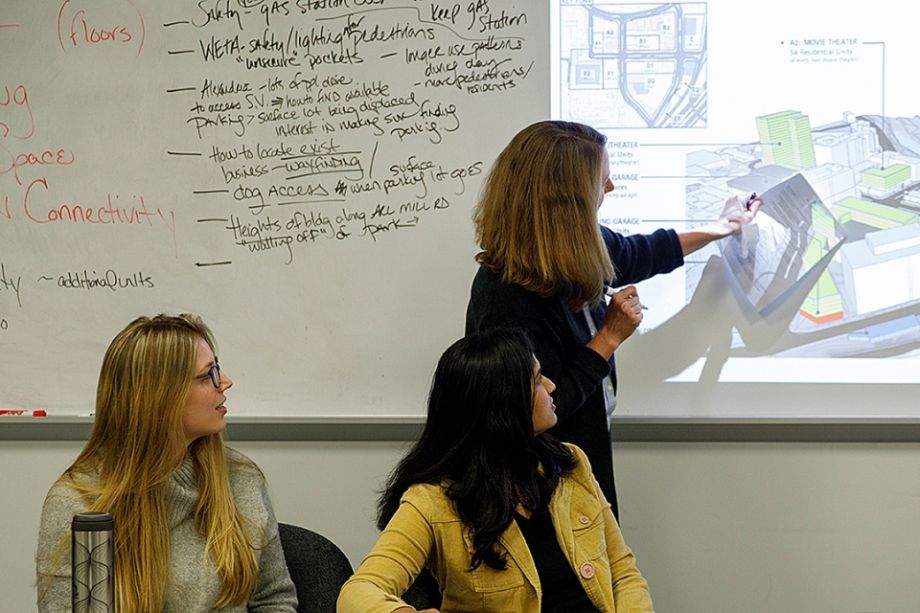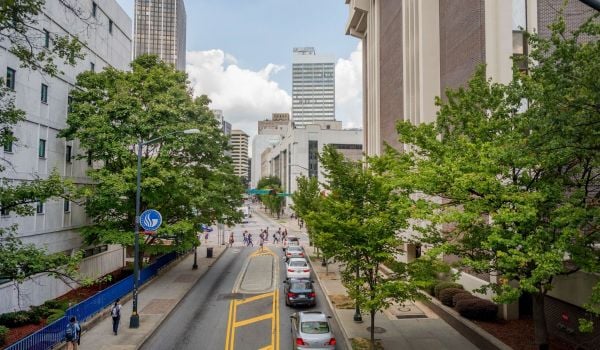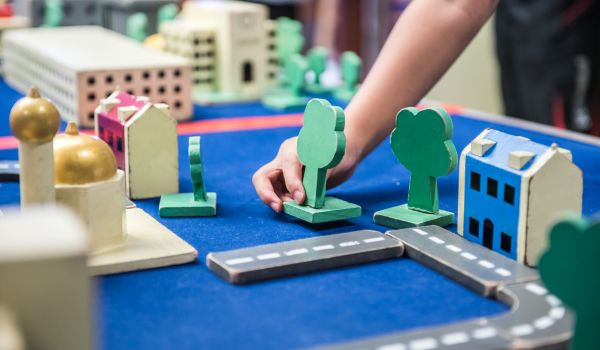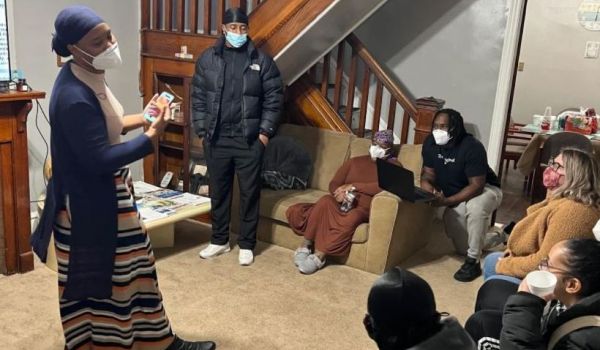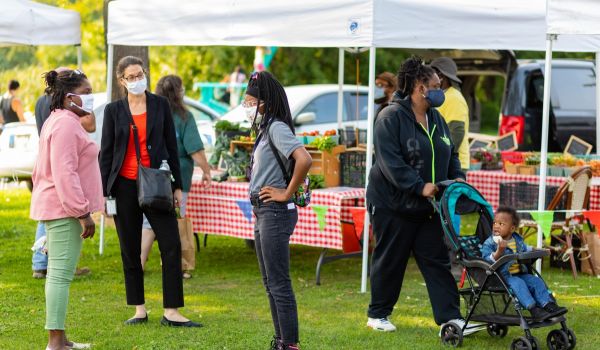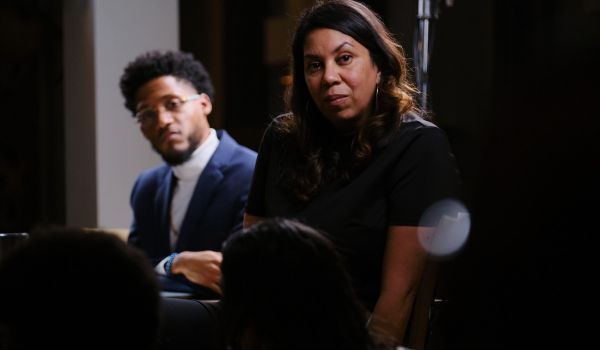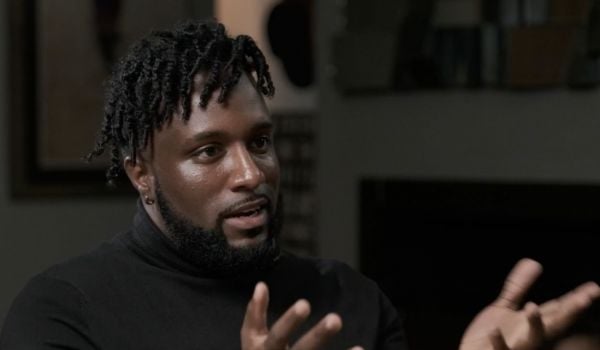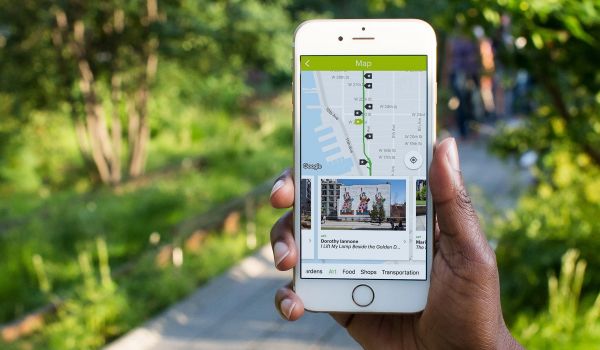At the George Washington University, students begin their planning careers while still in graduate school through the program’s partnerships focused on creating sustainable communities. Students are actively engaged with partners who act as the clients, engaging them in professional-level planning work. Recently, these projects have been centered around the parks and open space planning with an equity lens.
Students were engaged by the Natural Resources and Environmental Affairs Office at Marine Base Quantico to reimagine a vacant site on the base as a recreational amenity. In the spring of 2020, students embarked on the first of three studio classes to create an open space plan for the site known as Whiskey Gulch. In the 1940s, Whiskey Gulch was bustling with activity, home to the families of active-duty Marines. Over the years, new housing was built elsewhere on base and the homes were demolished. The site sat vacant for many years, leaving the roads, sidewalks and “bones” of the community. Students were engaged to create an open space plan to repurpose the area as an ecological amenity for those who live and work on the base.
Students designed and created the open space plan just as professional planners would: taking the plan from visioning to a cost and implementation plan. In the first part of the project, students interviewed stakeholders, visited the site and created the baseline conditions and description. Concurrently they set up the framework of the project, creating the mission, vision and goals. In a short video, the semester 1 students describe their work on a real-world project. The result of the first semester was a summary video describing the existing conditions, goals and opportunities.
In the second part of the studio which ran in the Summer of 2020, the class focused on creating a design manual for site development. Students focused on signage, streetscaping and park elements. They surveyed different types of signs such as trailhead makers; historical signage and informational signs like plant identity tags and made recommendations for typologies. In the streetscaping section of the manual, students identified elements that could be added or enhanced to make the area safer and more attractive. These included adding bike lanes, repairing the sidewalks and adding crosswalks. In the park elements section, students identified the need for an amphitheater, seating and water features such as stream restoration, a Devil Dogs water fountain and a splash pad for children.
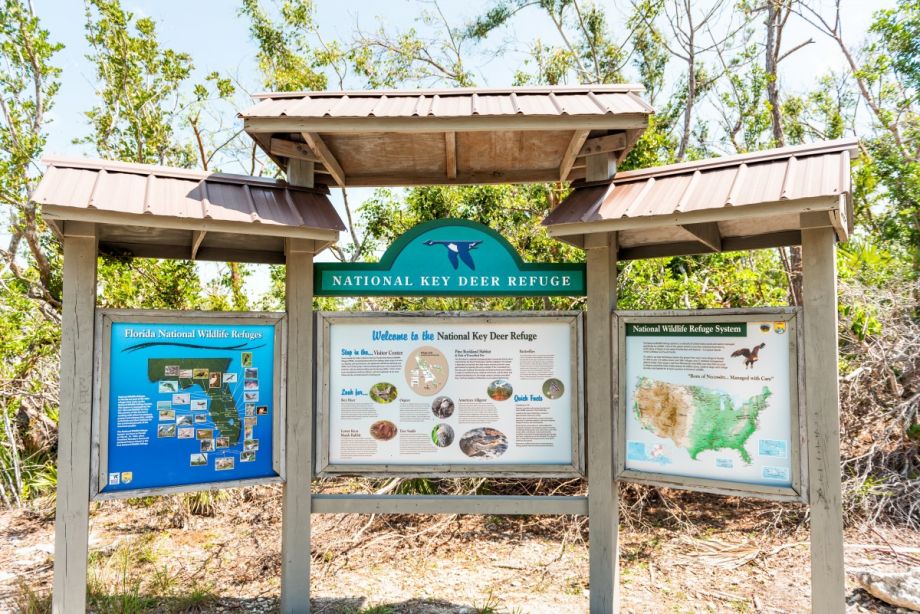
Students in GW’s Sustainable Urban Planning program worked on including signs such as this as part of their Whisky Gulch project. (Photo: Adobe)
The final deliverable is an open space plan that includes all of the elements identified in the first two classes and to incorporate those into a phased implementation plan showing the locations of the amenities on-site; illustrations of future improvements and cost estimates for each.
This series of studios provided students with professional experience working with a client and stakeholders to create an asset for the people who live and work on the base to walk, run and recreate with friends.
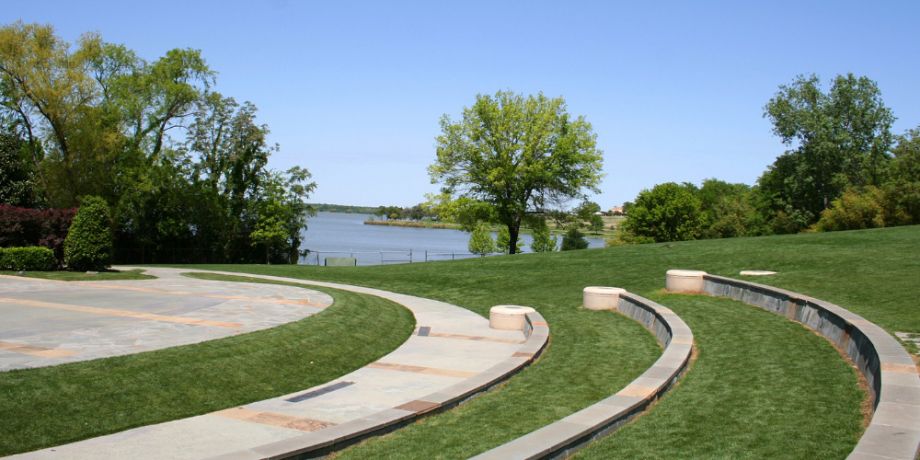
Students also identified the need for an amphitheater in the project. (Photo: Canva)
In keeping with providing students with opportunities in the parks and open space arena, the SUP program has an on-going partnership with the DCDPR through alumna Dulce Naime who is employed as a community planner there. Her section is developing equity guidelines for park development in the District but does not have enough staff to create the guidelines. In the spring of 2019, she and her team worked with students in the program to create a three-part literature review summarizing the current state of equity planning for parks and open space. This review served as the basis for the final recommendations for measures, methods and outstanding needs to create an equity plan for DCDPR. Students also compiled case studies of the approaches to equity taken by other cities the same size as D.C. All of this information was aggregated into three documents which were presented to DCDPR. Two student interns continued this work in the summer of 2020 to incorporate equity considerations into the department’s grant and budget applications. This partnership is on-going and continues to provide students with the opportunity to conduct work that serves a public need and builds their professional portfolios.
Students in the Sustainable Urban Planning Program work directly with the community on their parks and equity issues. The program’s partnerships in parks planning are deep, led by our stellar faculty members who have over 50 years’ combined experience in parks and open space planning. Students attain the necessary skills and education to impact communities’ health and equity through activities and real-life projects to develop professional urban planners skilled in implementing sustainable policies that lead to more ecological, efficient and socially cohesive cities. This master’s degree, with its focus on the triple bottom line of environmental, economic and social implications is ideal for students who want to change the world.
Dr. Sandra Whitehead, MPA, is the Program Director of the Sustainable Urban Planning Program at George Washington University. She teaches Justice, Equity, Diversity and Inclusion, the studio classes, and Land Use Law. Dr. Whitehead is a nationally recognized expert on the intersection of health, equity and the built environment.

